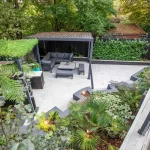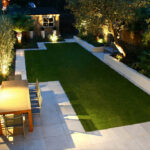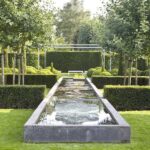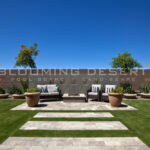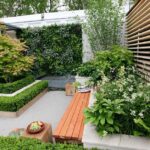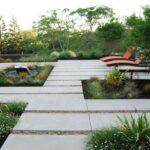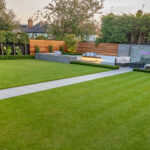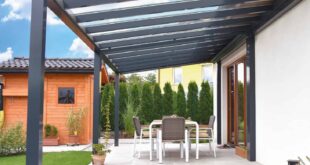Contemporary garden design is a growing trend in landscaping that combines traditional elements with modern aesthetics. This style is characterized by clean lines, minimalistic features, and a focus on outdoor living spaces. One of the key principles of contemporary garden design is the use of simple, geometric shapes and structures. This can be seen in the use of straight lines for pathways, square or rectangular plant beds, and modern sculptures or water features.
Another important aspect of contemporary garden design is the use of a limited color palette. Most contemporary gardens feature a mix of neutral colors such as white, gray, and black, with pops of bright colors used sparingly to create visual interest. This minimalist approach to color helps create a cohesive and harmonious aesthetic in the garden.
Contemporary garden design also emphasizes the use of sustainable and eco-friendly practices. This includes the use of native plants that require less water and maintenance, as well as the incorporation of recycled materials into the design. Many contemporary gardens also feature rainwater harvesting systems, solar-powered lighting, and composting areas to reduce their environmental impact.
In terms of landscaping materials, contemporary garden design often incorporates a mix of natural elements such as wood, stone, and gravel with more modern materials like concrete, glass, and metal. This juxtaposition of different textures and materials adds depth and visual interest to the garden, creating a unique and dynamic space.
One of the hallmarks of contemporary garden design is the integration of outdoor living areas into the overall design. This can include features such as outdoor kitchens, dining areas, lounging spaces, and fire pits, all designed to maximize the use of the garden as an extension of the home. These spaces are often seamlessly integrated into the garden design, blurring the lines between indoor and outdoor living.
Overall, contemporary garden design offers a fresh and modern approach to landscaping that combines traditional elements with a minimalist and eco-friendly ethos. By incorporating clean lines, limited color palettes, sustainable practices, and outdoor living spaces, contemporary gardens create a harmonious and inviting environment that is both functional and visually appealing.


